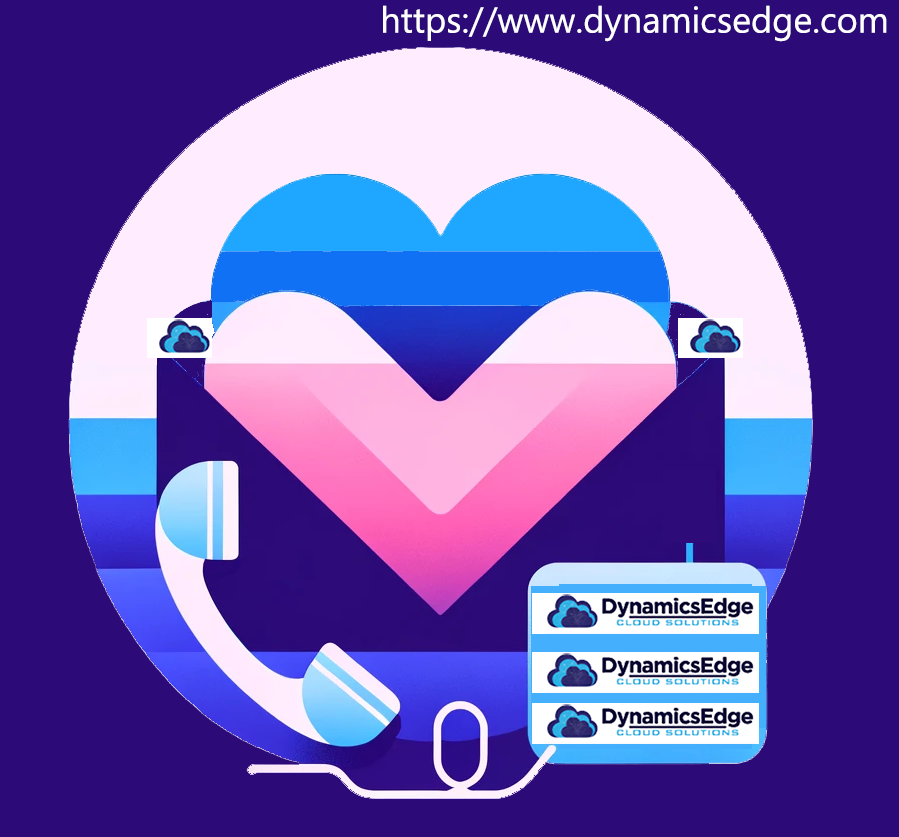Learn a power packed platform suite of enterprise resource planning (ERP) and customer relationship management (CRM) software applications with Microsoft Dynamics 365 training July 2024 to achieve a fundamental level of competence with integrating data, processes, business logic and more to facilitate your organizations in managing their operations and relationships with customers, their suppliers and employees.

Dynamics 365 suite is a cloud-based platform that offers your both flexibility and scalability to businesses as well as organizations of all sizes, and it encompasses a range of applications tailored to different business functions.
Dynamics 365 Sales Fundamental Training July 2024
With fundamental Microsoft Dynamics 365 Sales training July 2024 Dynamics Edge you should start by knowing that D365 Sales is a component of Microsoft’s Dynamics 365 suite, and it is specifically designed to enhance your sales processes through modernized automation, through improved performance analytics, and through effective customer relationship management (CRM). When you start leveraging your data-driven insights and integrating these with various sales tools, it ends up helping organizations to streamline their sales operations, to foster relationships with customers, and to drive your sales growth.
Sales Automation
In Dynamics 365 Sales Fundamentals training July 2024 sales automation means when you use tailored software to automate your manual, repetitive tasks in your sales process, such as entering data, sending emails, or updating sales opportunities. In Dynamics 365 Sales, you achieve automation through various features like your automated workflows (which can trigger actions or tasks based on specific criteria) as well as your AI-driven sales assistant that provides you with reminders, insights, and suggestions to your salespeople.
Improving Sales Performance through Data-Driven Insights
Data-driven insights tend to involve analyzing vast amounts of data to inform your decision-making processes. In Dynamics 365 Sales, these insights are generated through advanced analytics and predictive models that analyze sales data (e.g., customer interactions, sales history, and trends). The platform offers dashboards and reports that provide real-time visibility into sales metrics, helping sales teams to identify opportunities, forecast sales more accurately, and make informed decisions to optimize their sales strategies.
Customer Relationship Management (CRM)
CRM stands for Customer Relationship Management. It’s a real strategy for managing your organization’s relationships and interactions with your potential and current customers. CRM systems can help businesses and organizations stay connected to their customers, to streamline processes, and to improve profitability. Dynamics 365 Sales excels in CRM by offering you the right tools that manage your customer data, track your interactions, and automate your sales processes. This empowers you with personalized engagement and fosters your customer loyalty.
Leads and Opportunities
A lead in CRM represents your potential sales contact, and it’s an individual or organization that has expressed at least some interest in your products or services. Leads are typically at the initial stage or pretty much more towards the very beginning of the sales process. An opportunity on the other hand means a qualified lead that is at least a bit further along in your sales process. An opportunity represents a higher likelihood of closing your deal based on your lead showing interest- as well as meeting certain qualifying criteria.
Activities (Phone Calls, Emails)
Activities in Dynamics 365 Sales such as phone calls and emails, are actually tasks associated with your sales process. These help your sales teams to track your interactions with your customers and prospects. They help you to be sure you make timely follow-ups and personalized communication. When you document these activities, your sales representatives can provide much more consistent as well as relevant engagement, which may end up improving the chances of converting your leads into real sales!
Lead vs. Opportunity
The key difference between a lead and an opportunity lies in their sales lifecycle stage. A lead is an initial expression of interest in your products or services, whereas an opportunity is usually a more advanced stage that indicates a higher potential for you to get a sale. Transitioning a lead to an opportunity usually involves you qualifying the lead based on specific criteria, that signals a kind of readiness or potential to purchase.
Managing Leads
To manage your leads well, one should really understand how to qualify them effectively. This may involve assessing your lead’s interest level, purchasing power, as well as overall fit for the product or service. Dynamics 365 Sales facilitates this process through lead scoring models that prioritize your leads based on their likelihood to convert, which can enable your sales teams to focus their efforts on the most promising leads.
Accounts and Contacts
An Account in Dynamics CRM represents a company or organization in your CRM system. It’s a central record for storing your information and managing your relationships with a business entity. A Dynamics 365 CRM Contact is an individual within an Account. Contacts are generally associated with accounts, and are so important when you start personalizing your sales and marketing efforts.
Have a Question ?
Fill out this short form, one of our Experts will contact you soon.
Call Us Today For Your Free Consultation
Call Now